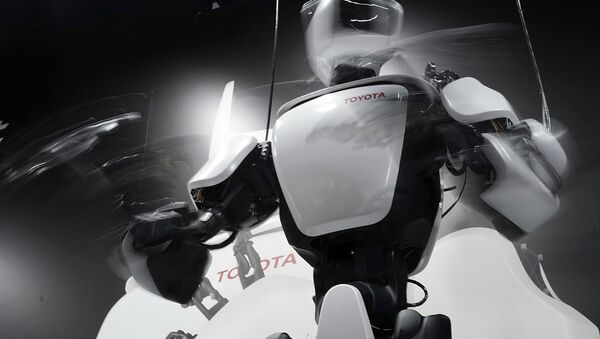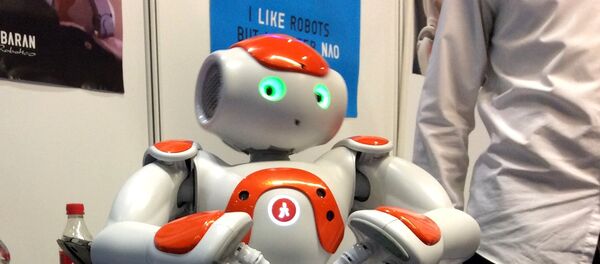Those humans controlling the robot waiters will use proprietary hardware and software to overcome severe physical disabilities including amyotrophic lateral sclerosis — a motor neurone disease — that would otherwise render them unemployable.
The Tokyo cafe, in the city's Akasaka district, will open in late November for a test run using OriHime-D robots some 1.2 meters tall and weighing about 20kg.
The chief executive officer of Ory Lab, Kentaro Yoshifuji, developed the robots and the user interface with the idea of allowing those who cannot leave a wheelchair to be able to contribute to society.
"I want to create a world in which people who can't move their bodies can work too," stated Yoshifuji, who suffered a debilitating illness as a child that prevented him from communicating effectively with his family and peers, according to SCMP.
Using broadband internet to send and receive live video and audio, the robot's controllers will direct the cafe's rolling waiters from their homes.
At the August debut of OriHime-D, a robot waiter was successfully directed by a sufferer of autophagic vacuolar myopathy, which causes muscle weakness, to serve chocolate to family members.
OriHime has introduced smaller robots — at 21.5cm tall and weighing 600 grams — for human employees who telecommute and students requiring remote educational resources.
Ory Lab intends to have a more permanent cafe using the OriHime line of robots up and running for the 2020 Tokyo Olympics and subsequent Paralympics.
"Everyone should have the freedom to work in the way they like," stated Masatane Muto, a project organizer living with with a motor neurone disease.
"I want to send out the message toward 2020 that you can show hospitality even if you have disabilities," Muto noted, cited by SCMP.



